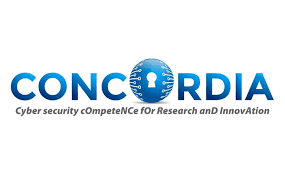|
6th International Workshop on Traffic Measurements for Cybersecurity
(WTMC 2021) co-located with 42nd IEEE Symposium on Security and Privacy
|
|
Virtual Workshop Thursday, May 27, 2021
Overview
Current communication networks are increasingly becoming pervasive, complex, and ever-evolving due to factors like enormous growth in the number of network users, continuous appearance of network applications, increasing amount of data transferred, and diversity of user behaviors. Understanding and measuring traffic in such networks is a difficult yet vital task for network management but recently also for cybersecurity purposes.
Network traffic measuring and monitoring can, for example, enable the analysis of the spreading of malicious software and its capabilities or can help to understand the nature of various network threats including those that exploit users’ behavior and other user’s sensitive information. On the other hand network traffic investigation can also help to assess the effectiveness of the existing countermeasures or contribute to building new, better ones. Recently, traffic measurements have been utilized in the area of economics of cybersecurity e.g. to assess ISP “badness” or to estimate the revenue of cybercriminals.
The workshop will be accessible to both non-experts interested in learning about this area and experts interested in hearing about new research and approaches. Topics of interest include but are not limited to:
SUBMISSIONS
Papers will be accepted based on peer review (3-4 per paper) and should contain original, high-quality work. All papers must be written in English.
IMPORTANT DATES
February 1, 2021 (AoE, UTC -12) [Extended]: Paper Submission
WORKSHOP REGISTRATION
The workshop registration is now open. Please follow the instructions on the IEEE S&P conference page here.
REGISTRATION WAIVERS
Registration grants are available to cover the expenses of student attendees to the IEEE S&P Symposium and WTMC. We encourage applications from students from a wide variety of institutions, diverse backgrounds, and first-time attendees. Undergraduate and graduate students will be considered for this award. Applications are due by May 14, 2021. You can find more details about Student Registration Grants here: here.
VENUE
The 6th WTMC workshop will be held as a virtual workshop.
PROGRAM
KEYNOTES
The open-source nature of the Android OS makes it possible for manufacturers to ship custom versions of the OS along with a set of pre-installed apps, often for product differentiation. Yet, the Android supply chain lacks transparency and has facilitated potentially harmful behaviours and backdoored access to sensitive data without user consent or awareness. This talk will describe our ongoing efforts to systematically and empirically characterise the Android supply chain, its stakeholders, and to reveal overlooked privacy intrusive and potentially harmful pre-installed software resulting from the lack of control over device manufacturers. Short BioNarseo obtained his Ph.D. at the University of Cambridge in 2014. His research interests fall in the area of network measurements, with a focus on measuring online privacy and security risks. During his academic career, Narseo has won best paper awards at some of the most prestigious peer-reviewed conferences in networking and security including the 2020 IEEE Symposium on Security and Privacy (S&P), USENIX Security’19, ACM IMC’18, and ACM CoNEXT'14 and he has also received several industry grants including a Google Faculty Research Awards in 2018, a DataTransparency Lab Grant in 2016, and a Qualcomm Innovation Fellowship in 2012. His work in the mobile security and privacy domain has influenced policy changes and security improvements in the Android platform, while his study on the privacy and security risks of pre-installed Android software has received the recognition of several EU Data Protection Agencies as reflected by the AEPD Emilio Aced Award and the CNIL-INRIA Privacy Protection Awards. International media outlets like The Washington Post, The New York Times, The Guardian, or the Financial Times have covered Narseo’s research.
Amplification DDoS attacks plague the Internet for a long time. Although quite simple from a technical point of view, these attacks can reach powerful attack bandwidths of several Tbps while also hiding the attacker behind a veil of IP spoofing. This talk will discuss how honeypots can be used to observe these attacks, which trends can be observed from multiple years of datacollection, and how honeypot data can be ultimately used to uncover attacking infrastructures responsible for such attacks. Short BioJohannes Krupp is a researcher at the CISPA Helmholtz Center for Information Security in Saarbrücken, Germany. He joined CISPA as a Ph.D. candidate after receiving a bachelor degree in computer science from Saarland University in 2014. His research on DDoS attacks and attack attribution has been recognized by the academic community with publications at RAID, CCS, and EuroS&P, and was awarded a SRL graduate fellowship.
ORGANIZING COMMITTEE
Maciej Korczyński, Grenoble Alps University, France Wojciech Mazurczyk, Warsaw University of Technology, Poland Pedro Casas, AIT, Austria
STEERING COMMITTEE
Nicolas Christin, Carnegie Mellon University, USAWouter Joosen, Katholieke Universiteit Leuven, Belgium Anna Sperotto, University of Twente, Netherlands
PROGRAM COMMITTEE
SPONSORS
 
SUPPORTERS
We are grateful to our supporters who will help us make WTMC'21 a great event.  
PREVIOUS WORKSHOPS
WTMC 2020 at IEEE Euro S&P, Virtual EventWTMC 2019 at IEEE S&P, San Francisco, California, USA WTMC 2018 at ACM SIGCOMM Budapest, Hungary WTMC 2017 at IEEE S&P, San Jose, California, USA WTMC 2016 at ACM ASIACCS, Xi'an, China
CONTACTS
Contact WTMC 2021 chairs using this email address: wtmc2021@easychair.org. |
